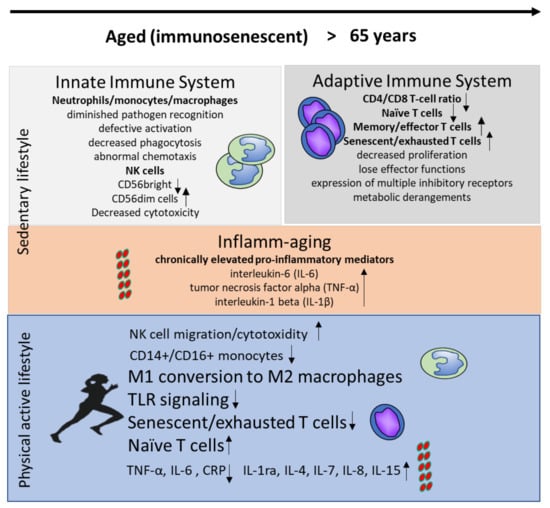How to Boost Your Immune System with Diet

How to Boost Your Immune System with Diet
As we age, maintaining a strong immune system becomes increasingly important. Middle-aged individuals, particularly those between 40 and 55, can benefit significantly from dietary changes that support immune health. This article will guide you through practical and engaging ways to enhance your immune system using diet, tailored specifically to your lifestyle and needs.

Introduction to Immune Health
The immune system is your body’s defense against infections and diseases. It involves a complex network of cells, tissues, and organs that work together to protect you from harm. As we age, our immune system naturally weakens, making us more susceptible to illnesses. However, a well-balanced diet rich in essential nutrients can help bolster your immune defenses.

Key Nutrients for Immune Health
Certain nutrients play a crucial role in supporting immune function. Here are some of the most important ones:
-
Vitamin C: Found in citrus fruits, bell peppers, and strawberries, vitamin C supports both innate and adaptive immune responses .4. It helps increase the production of white blood cells, which fight infections.
-
Vitamin D: Essential for immune cell regulation, vitamin D is found in fatty fish, eggs, and fortified dairy products .2. Maintaining adequate vitamin D levels is crucial, especially during winter months when sunlight exposure is limited.
-
Zinc: This mineral is vital for the production and function of immune cells. It is abundant in oysters, beef, chicken, and fortified cereals .3.
-
Beta Carotene: Converted into vitamin A in the body, beta carotene supports T cells and is found in sweet potatoes, carrots, and leafy greens .3.
-
Probiotics: These beneficial bacteria, found in yogurt and fermented foods like kimchi, support gut health, which is closely linked to immune function .4.

Immune-Boosting Foods
Incorporating a variety of immune-boosting foods into your diet can make a significant difference. Here are some of the best options:
-
Citrus Fruits: Oranges, grapefruits, and lemons are high in vitamin C, which helps fight infections .1.
-
Nuts and Seeds: Almonds, walnuts, and sunflower seeds provide healthy fats and essential minerals like selenium and zinc .1.
-
Spices: Garlic, ginger, and turmeric have anti-inflammatory properties that support immune health .1 .5.
-
Leafy Greens: Spinach and broccoli are rich in vitamins A, C, and E, as well as fiber and antioxidants .5.
-
Fatty Fish: Salmon and tuna are excellent sources of vitamin D and omega-3 fatty acids, which reduce inflammation .8.
-
Yogurt: Choose plain, unflavored yogurt with live cultures to support gut health .5.
-
Sweet Potatoes: High in beta carotene, which converts to vitamin A, supporting immune cell function .3.

Practical Dietary Tips
Here are some practical ways to incorporate these foods into your daily diet:
-
Breakfast Ideas:
-
Start with a smoothie made from Greek yogurt, spinach, and citrus fruits.
-
Add sliced almonds or walnuts to your oatmeal for a crunchy, nutritious topping.
-
-
Lunch Suggestions:
-
Include a variety of colorful vegetables in your salads, such as bell peppers and carrots.
-
Use herbs and spices like garlic and ginger in your cooking for added flavor and immune benefits.
-
-
Dinner Options:
-
Grill salmon or tuna with a side of roasted sweet potatoes and steamed broccoli.
-
Add turmeric to your soups or stews for its anti-inflammatory properties.
-
-
Snacks:
-
Enjoy a handful of nuts and seeds as a quick energy boost.
-
Keep a bowl of citrus fruits on your counter for easy access.
-

Lifestyle Changes to Support Immune Health
While diet is crucial, other lifestyle factors also play a significant role in maintaining a healthy immune system:
-
Sleep: Aim for 7-9 hours of sleep each night to help your immune system function optimally .2.
-
Exercise: Engage in moderate physical activity, such as walking or yoga, to reduce stress and boost immunity .8.
-
Stress Management: Practice stress-reducing techniques like meditation or deep breathing exercises .8.
-
Hygiene: Wash your hands frequently, especially during cold and flu seasons, to prevent the spread of infections .2.

Conclusion
Boosting your immune system with diet is a proactive step towards maintaining overall health. By incorporating immune-boosting foods and nutrients into your daily meals and adopting healthy lifestyle habits, you can enhance your body’s natural defenses. Remember, a balanced diet combined with regular exercise, adequate sleep, and stress management will help keep your immune system strong and resilient.

Additional Tips for Writing Engaging Health Content
When crafting articles about health and wellness, consider the following strategies to engage your audience:
-
Know Your Audience: Tailor your content to the specific needs and interests of middle-aged individuals, focusing on practical advice and relatable examples .7 .9.
-
Use Clear Language: Avoid medical jargon and use plain language to make your content accessible to everyone .7 .10.
-
Include Visuals: Add images or infographics to illustrate key points and make your content more engaging .7.
-
Provide Actionable Insights: Offer readers practical tips and steps they can take to improve their health .7.
-
Ensure Accuracy: Use reliable sources to ensure the accuracy and credibility of your information .







